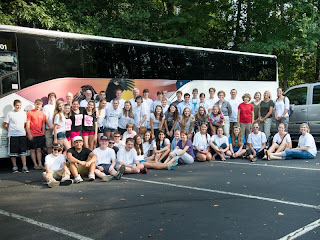Across America there is a trend in congregational life that is somewhat alarming. Every denominational body is seeing a decline in people involved in worship and ministry. Church is becoming one of many options for people to choose from in their busy lives. In some cases, people are opting out of church and choosing other activities to invest their lives. There is no better alternative in one’s life than to have a strong relationship to God. The church will continue to be a place where people will be encouraged and supported through the best and worst of times. There is no other message than the Good News of Jesus Christ which brings strength for daily living, peace within one’s heart, and a purpose and direction for living. It is with this in mind that Lord of Life is committed to changing this trend within our community. Our church leaders and staff are committed to ensure that our relationship to Jesus Christ will be valued above all other competing forces that seek to engage individuals and families. Lord of Life will continue to search for ways to connect to the needs of people in this place and time. We will understand the barriers to faith development and seek solutions in overcoming them. These are some ways in which we will achieve this goal:
Provide opportunities for all ages to grow in their relationship to Jesus Christ. Marks of Discipleship and Children and Family Ministry have detailed in which every household will be offered practical ways to deepen your faith through sermon series, small group offerings, resources, and in-home activities.
Engage a research and development program to ensure a congregational life that reflects the present/future cultural trends with the power of the gospel. As we move into the future with rapid cultural changes, especially in the area of technology, we will endeavor to seek ways for the church’s ministry to connect with the daily needs of our people. Lord of Life seeks to be proactive in finding strength and purpose in our changing environment.
Assess the worship needs and styles for the next few years: No longer is one style of worship is meaningful to all ages. Some worshippers prefer traditional, some contemporary, some contemplative, and some more informal worship. If we are going to reach all ages with the gospel’s message, we need to address how best to use our talents and resources in providing meaningful inspiring worship for all ages.
Live out the “Great Commission” (“Go therefore, and make disciples…Matt. 28:19) and the “Great Commandment” (“Love the Lord your God with all your heart, mind, and soul—and your neighbor as yourself”…Matt. 22:36-40). These two verses continue to guide our thinking and our planning. They are like our North Star. Our ministry is shaped by our Mission Statement and Biblical imperatives. Our leadership and staff teams are committed to be faithful to these.
Visibly serve in the community, nation, and world through acts of kindness: Lord of Life has a strong history of making a difference in the lives of others. We are driven by the Biblical mandate of Micah 6:2 “What does the Lord require of you but to do justice, and to love kindness, and to walk humbly with God.” We will seek ways to assist our local government leaders, schools, and other community agencies to share our time, talents, and resources. This also applies to national and international needs.
Proactively steward our resources to include prudent fiscal management of our monetary and human resources. Lord of Life is blessed with outstanding gifted people. Our motto continues to be, “Those who are so blessed have much expected of them as well”. We ask for everyone’s participation–sharing their time, talents, and resources—to be good stewards of what we have been given. Sound fiscal financial management of our resources has been another hallmark of our ministry. Lord of Life will continue to do so.
Ensure that Lord of Life’s future continues with dynamic leadership and vision. Lord of Life is committed to looking at the long term staffing needs to ensure this ministry moves from strength to strength. The congregation also remains committed to the continued necessity of a compelling vision to steer our ministry in the years ahead.
“I thank God in all my remembrance of you,” I chose Paul’s words to the church at Philippi to be my words as well. From the smiles and hugs from the little ones to the firm hand shake and look in the eye of each saint of God, this is a wonderful place to serve. Each of you is a treasure that God has placed in the midst of this congregation that together we can share each other’s burdens and celebrate each other’s blessings. May you know you are special to God and to each of us in this church family. So Let Our Light Shine. I like the wisdom of Margaret Mead, “Never doubt that a small group of committed citizens can change the world. Indeed, it’s the only thing that has.” Also I share this quote from an unknown source, “The person who says it can’t be done should not interrupt the person who is doing it.” Never forgot that you are people of an Almighty God. Never forget that our highest appreciation is not to utter words, but to live them out. May our thanks to God be expressed loudly and boldly as we serve one another in love and joy!
Go with God,
Pastor Qualley























